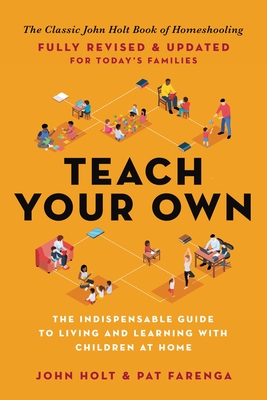What do you think?
Rate this book


384 pages, Paperback
Published September 28, 2021
Education is an important element of civil society but it has become a sedentary institution serving much more as a gatekeeper for employment opportunities instead of enabling active learning for students. Both in person and online education continue to operate on the assumption that by exposing all children to the same information at the same time they will learn it.
John Holt believes that children want to learn about the world, are good at it, and can be trusted to do a very little adult coercion or interference.
Most people don't like or trust kids, and people who are suffering and see no way out of it often want others to suffer.
Learning is as natural as breathing, and healthy people do not need to be motivated externally to do it! We, and children, can simply do things and learn from them.
Instruction limits spontaneous exploration and discovery.
The amount of sustained attention, love, one gives to a practice depends on the amount of control the practitioner has in the process. School takes all control away from children. This feeling of suddenly not being able to trust one's own memory is common enough, and above all when one is anxious.
What makes people smart, curious, alert, observant, competent, confident, resourceful, persistent--in the broadest and best sense, intelligent--is not having access to more and more learning places, resources, and specialists, but being able in their lives to do a wide variety of interesting things that matter, things that challenge their ingenuity, skill, and judgment, and that make an obvious difference in their lives and the lives of people around them.
When schools or teachers use "tried-and-true" methods that everyone is used to--that is, rote learning, drills, and the like--and these methods don't work, as they usually don't, the public is willing to let the schools blame the students. But when a school or teacher uses a method that people consider new and it doesn't work, the public blames them. So the rule is, to avoid trouble, stick to the old methods, evenif they don't work.
Intelligence is not the measure of how much we know how to do, but of how we behave when we don't know what to do. It has to do with our ability to think up important questions and then to find ways to get useful answers.